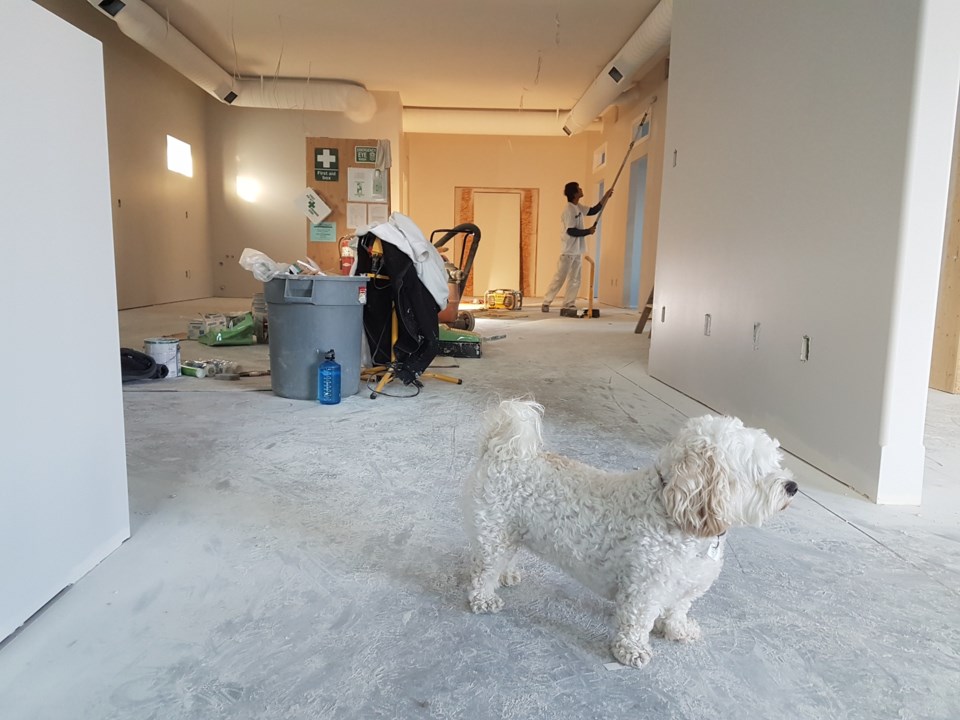To address the lack of affordable housing in Squamish, the District is moving toward partnering with an agency to create more rental housing stock in the community.
On Tuesday night, at their first official regular council meeting, the newly-elected council unanimously voted to direct staff to work toward a partnering agreement with an operating organization for the Buckley Avenue 76-unit purpose-built rental housing project and any affordable housing units dedicated to the District by third parties.
“We need to have that in place very quickly,” general manager of community planning and infrastructure Gary Buxton told council, about the Buckley Avenue BC Housing project.
As locals know well, housing has proven to be a desperate issue for many in the community, which has led to this move for the District to have a role in creating local housing.
There is a zero vacancy rate in Squamish, with a “critical need” for close to 500 new affordable rental units, according to the District’s Community Housing Needs Assessment report released in July.
Thirty-six per cent of renters in the District spend more than 30 per cent of their before-tax income on rent and utilities.
Since 2016, Victoria-based not-for-profit consulting firm M’akola Development Services has been working with the District with the goal of developing a long-term Squamish affordable housing entity.
This work came out of recommendations of the 2016 District’s Housing Task Force final report.
The next step toward Squamish’s new Affordable Housing Program is the creation of a Squamish housing agency, “to provide housing solutions that directly support low-to-moderate income households within the District and assist indirectly in the provision of core needs housing,” according to the M’akola report, Affordable housing framework: Squamish housing organizational evaluation presented to council Tuesday night.
The M’akola report laid out four organizational options for the agency but recommended the “blended” operational approach, which was also unanimously supported by Squamish council Tuesday night.
This means partnering with an existing not-for-profit group to manage the units that are being developed in the short term — the next five years — and then working to transition to a municipal housing corporation in the longer term, the report states.
The other options included creating a new housing corporation, creating a new non-profit; or operating a housing organization in-house at the District.
According to the M’akola report, which used a matrix to evaluate each option, the advantages of partnering with an existing organization include that it is a relatively quick solution, doesn’t duplicate services already in the community, and means less risk for the District. It will also enable the existing group to grow its housing inventory.
District staff will next identify the not-for-profit operating body to manage and operate the Buckley Avenue project through a partnering agreement. Staff will also negotiate a partnership agreement with the same organization to operate and manage any affordable housing units that will be available through housing agreements that come out of community amenity contributions.
The agreement(s) once drafted, will be brought to a future council meeting for approval.
Current expenses for these plans are within the budgeted amount, according to a report from District staff also presented Tuesday night. $70,000 was budgeted for affordable housing in 2018, plus $40,000 was carried over from 2017. About $60,000 will be spent in 2018 for contracted services with leftover amounts pushed to 2019.
Staff recommends another $30,000 in new funding be made available for affordable housing in the 2019 budget in addition to about $50,000 that is expected from 2018. These add up to about $80,000 for the project.
Staff note in the report that all of the expenses related to the Buckley Avenue rental project have been assigned to the close to $200,000 grant received from BC Housing and CMHC. About $170,000 has been spent so far. No more will be spent until BC Housing makes a funding announcement concerning the project, the report states.



